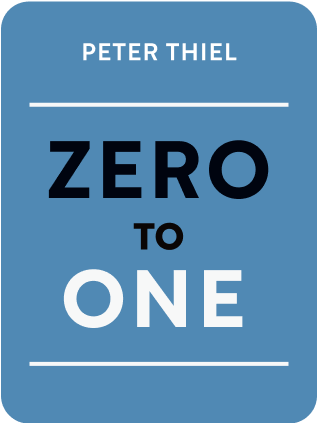

This article is an excerpt from the Shortform summary of "Zero To One" by Peter Thiel. Shortform has the world's best summaries of books you should be reading.
Like this article? Sign up for a free trial here .
What are startup secrets? What do they mean, and how do they affect business?
Startup secrets are a key to a startup’s success. Startup secrets mean that a company has yet to discover some of the most important products and technologies, and that you can work toward discovering them free of competition. Keep reading to see how Peter Thiel explains the value of startup secrets.
The Value of Startup Secrets
Creating a great business that no one else can compete with starts with discovering and building on a secret—it can be an untapped opportunity or a different way of looking at a problem. This chapter suggests ways to think about startup secrets and how to find them.
There’s a lot we don’t understand or haven’t thought of. Some secrets may be unfathomable, for instance string theory, the so-called Theory of Everything, which describes the universe in terms of strings. However, other secrets are challenging but still discoverable.
For example, the business version of the contrarian question—”What valuable company hasn’t been started yet?”—is challenging but answerable. As long as there are secrets to discover, there are revolutionary companies to start.
Our Vanishing Sense of Mystery
Today, most people act as if there isn’t anything left to discover; they simply accept conventional wisdom.
Unabomber Ted Kaczynski wrote a “manifesto” arguing that people are depressed because all of the world’s challenging problems have been solved. He claimed people need challenging goals to work for, but only easy and impossible problems are left and addressing those is pointless. So he sought to destroy all institutions and technology so people could start over on solving challenging problems.
Kaczynski was mentally ill, but many people have the same kind of certainty that we know everything we need to know. Society has come to believe there aren’t any challenging startup secrets left to discover.
Specifically, four trends have undermined our belief in secrets:
- Incrementalism: from an early age, we’re taught that the right way to do things is by taking one small step at a time. You don’t get credit for thinking outside the box or learning something that’s not on the test. But if you follow directions step by step, you’ll get an A.
- Risk aversion: People are afraid to explore or look for secrets because they’re afraid of being wrong. Secrets haven’t been vetted by the mainstream, so if you announce something new, you’ll risk going out on a limb by yourself or making a mistake.
- Complacency: Social elites—those with wealth, advanced education, and status—have the greatest ability to explore new thinking, but they come to like their comfortable position and don’t want to rock the boat.
- Homogenization: As globalization increases, people increasingly view the world as a single market—or flat—with everyone competing on an equal basis, thanks in large part to the spread of technology, which has eroded geographic and political barriers. Many believe that if there were anything new to discover, someone in the global talent pool would already have done it.
Fifty years ago, people were more open to new ideas. Today, few people espouse offbeat ideas or take such ideas seriously—and society considers not being bothered by “crazy” ideas a sign of progress. We’ve given up any sense of mystery.
The Problem With Conventional Wisdom
Believing only in what’s accepted as true creates problems or makes it harder to recognize and solve them.
For example, in economics, because of a firm belief in market efficiency, people missed seeing the tech and housing bubbles before they burst in 1999 and 2005 (bubbles result from market inefficiencies). While Fed Chairman Alan Greenspan noticed signs of trouble in the housing market, he dismissed them, saying that “a bubble in home prices for the nation as a whole does not appear likely.” But economists couldn’t negate the secrets or unexpected developments in these markets by ignoring them.
The decline of Hewlett-Packard is an example of what can happen when a company stops believing in the value of startup secrets or new ideas. Throughout the 1990s, HP introduced a string of new devices: the first affordable color printer, one of the first highly portable laptops (the OmniBook), and the first device to combine printer/fax/copier capabilities. By mid-2000, as a result of the ongoing product development, HP’s value had jumped from $9 billion to $135 billion.
Then it switched focus from inventing things to providing services and support and began losing value. The company’s board split into two factions and devolved into infighting. A brief effort by one of HP’s original engineers to focus on new technology was rebuffed. By late 2012, the company was worth only $23 billion (close to what it was worth in 1990 when you adjust for inflation).
Why Look for Startup Secrets?
Finding startup secrets takes faith that they exist, as well as effort—but the potential value to society, whether in the form of new knowledge or a valuable new business, is unlimited.
English mathematician Andrew Wiles demonstrated both faith and persistence, when, after nine years of work, he proved Fermat’s last theorem in 1999—a mystery that had gone unsolved for 358 years.
There’s much more to accomplish in science, medicine, technology, and engineering by pursuing the unknown. We could cure cancer, dementia, and many other diseases and address the problems of aging. We could find sustainable ways to produce energy and come up with new ways to travel.
In business, we could build highly successful companies on new ideas or newly noticed opportunities. For instance, several Silicon Valley startups discovered how to leverage unused capacity. Airbnb recognized and connected a supply of unoccupied lodging with travelers’ demand for affordable and unique accommodations. The founders of Uber and Lyft built billion-dollar businesses by connecting people who needed rides with drivers willing to provide them. Believing in secrets (untapped potential) and looking for them enabled these entrepreneurs to see an opportunity no one else noticed.
If ideas that seem so simple in hindsight can support such high-value businesses, imagine how many more great companies could be started.
Finding Secrets
Finding secrets requires asking questions no one else is asking and looking where no one else is looking.
There are both natural secrets and human secrets. Natural secrets involve the physical world, while human secrets are things people don’t realize about themselves. When considering what type of company to build, ask: What’s nature not telling you and what are people not telling you?
People sometimes wrongly assume natural secrets are the most important because they’re typically uncovered only by years of study and research. In comparison, discovering human secrets is often unappreciated because it’s not “rocket science.” The key is funding human secrets is simply to ask: What are people not allowed to talk about or discouraged from talking about?
Sometimes looking for natural and human secrets leads to the same discovery—for instance, there are two ways you could approach the monopoly secret that capitalism and competition are opposites.
1) You could discover it by doing an analysis of corporate profits that shows how profits are eliminated by competition.
2) You could ask a human question: What are the people running companies discouraged from saying? Monopolists are discouraged from acknowledging their dominance, and competitive companies are discouraged from acknowledging their competition.
The best place to find secrets or new ideas is where no one else is looking. For example, in considering a choice of career, instead of focusing on established fields, you could look for fields that have value but haven’t been standardized or institutionalized.
Physics is standardized and taught the same way at every university. However, in the field of nutrition, there are many open questions and ideas that no one is studying. Much of the data is 30 to 40 years old, and much of what the government tells people about what to eat is a result of lobbying by the food industry rather than recent science. In some ways, we know more about space than human nutrition—which makes the latter a good place to discover secrets.
Startup secrets are an important part of the business. They require asking questions no one else is asking, and being bold enough to discover the answers.

———End of Preview———
Like what you just read? Read the rest of the world's best summary of Peter Thiel's "Zero To One" at Shortform .
Here's what you'll find in our full Zero To One summary :
- Why some companies genuinely move the world forward when most don't
- How to build a company that becomes a monopoly (and why monopolies aren't bad)
- Silicon Valley secrets to selling products and building rockstar teams






